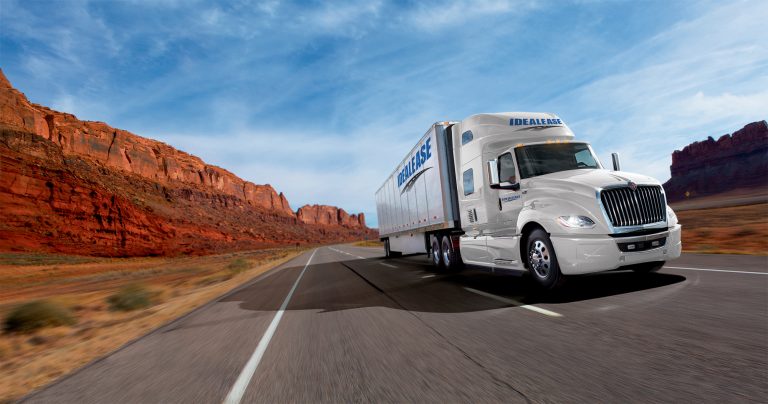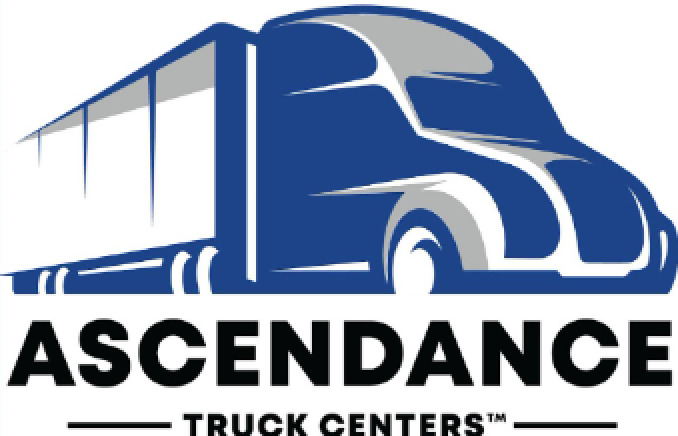By: Collin Dean, General Manager, Ascendance Idealease

Many owners, operators, or managers with an aging truck or fleet face the same issues. Escalating total costs of ownership, ongoing maintenance, fears of breakdown, and trying to anticipate the unknowns in the vehicle’s dwindling life have them at a crossroads. At what point will the vehicle cease being a trusted part of the operation and become a burdensome wildcard?
If you’re such an owner facing the disposition of existing equipment, why gamble? Now may be the time to consider the benefits of a full-service truck lease. As costs of ownership rise and ownership of an aging fleet grow increasingly complicated, leasing eliminates many of the headaches.
How do you know if a full-service lease is right for your situation? Weigh these considerations…
No upfront costs. Leasing is cost-effective and provides more predictability and control with regard to budgeting. Depending on the terms and with credit approval, leasing can require as little as no money down. The lessor purchases the equipment, leaving the customer responsible for the simplicity of planning for the monthly payment and variable mileage costs.
It’s not your fleet to maintain. The lessor, who enjoys the cost benefits/scale advantages from buying thousands of vehicles a year, specs the specific vehicle suited to the lessee’s exact needs. They then use that volume purchasing power to acquire, maintain, and at the end of the term, dispose of the equipment. Regular maintenance and repairs are included in the lease, and the leasing company should reach out to schedule regular maintenance. For a typical term of five to seven years, all the lessee has to budget for beyond the lease and mileage is fuel, drivers, and insurance.
Reduced financial headaches. The elimination of maintenance and repair expenses, where applicable, along with the fixed monthly payments, bring significant predictability to budgeting. And while some CFOs and accountants will advise that buying a vehicle avails the owner of Section 179 depreciation, leasing payments, can be depreciated over the lease term. So, in a fiscal sense, it can be a wash.
Reduced regulatory administrative tasks Lessors can leverage specialized expertise from the leasing provider, including navigating complex industry regulations; state and federal reporting, including fuel tax and regulatory reporting; and compliance, and maintaining up-to-date licensing and permits. Freedom from the administrative financial aspects of fleet management can enhance the lessee’s internal productivity and allow them to focus on core operations.
The latest advancements. The modern and well-maintained fleet you find with a full-service truck lease will ensure a higher likelihood of uptime. Moreover, late-model trucks are equipped with the latest technology, improved fuel efficiency, reduced emissions, as well as features that improve driver comfort and safety.
Availability of replacements and additional vehicles. If the truck does break down, most lease agreements include roadside assistance, loaners, and replacements. Moreover, access to a lease or rental fleet provides the agility to flex up equipment availability for seasonal needs.
No depreciation or resale concerns. One of the greatest headaches of a truck owner is disposing of the vehicle at the end of its useful life cycle. It’s especially difficult in the current, unpredictable used truck market. Timing the market to capitalize on its peak is a struggle, even for the most seasoned experts.
The value of reduced risk and peace of mind. Transfer of risks associated with ownership to a trusted leasing provider who handles every detail from speccing the vehicle, to buying the equipment, to disposition of the fleet at the lease term’s end removes all those details and costs from your side of the ledger, while protecting you against unexpected maintenance and repair costs.
If these benefits sound enticing, then have your dealer run the numbers. It can be as simple as requesting a Vehicle Acquisition and Maintenance Analysis (VAMA). Using the proprietary VAMA rating system by Idealease from Ascendance, the lease manager will input the cost, anticipated mileage, and lease term to build out an expense estimate comparing the costs of a full-service lease versus traditional ownership.
If your equipment is nearing its end of useful life and you’re considering a lease, ask your vehicle provider if a full-service truck lease is right for you. Chances are shifting costs, maintenance, and disposition off your side of the ledger by adding reliable and well-maintained equipment will turn a wildcard into your ace in the hole.
About The Author

Collin Dean is General Manager with Ascendance Idealease. Throughout the last decade in the truck leasing sector, Collin has worked with some of the nation’s leading customers, helping draft custom leases based on each user’s unique needs. Any questions? Contact Collin at [email protected].






